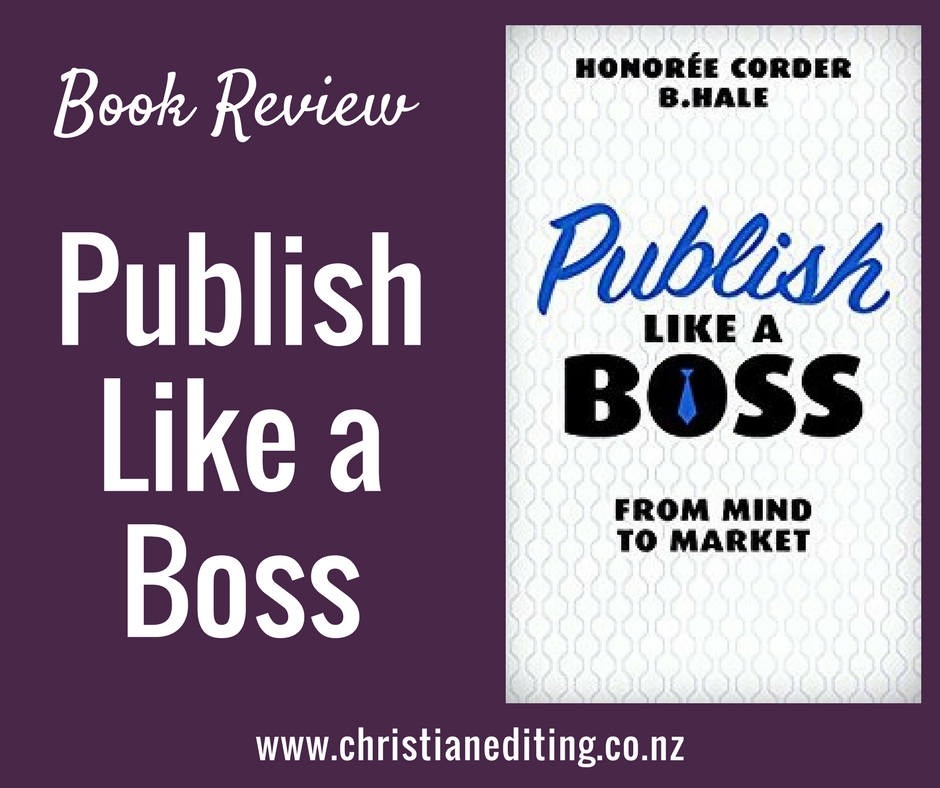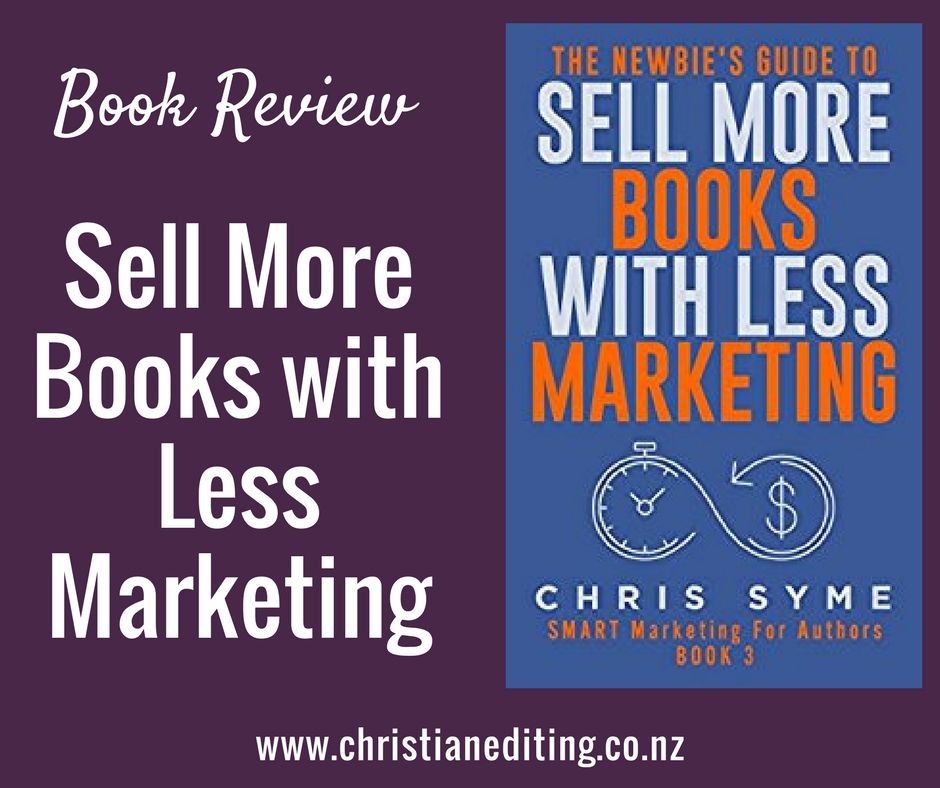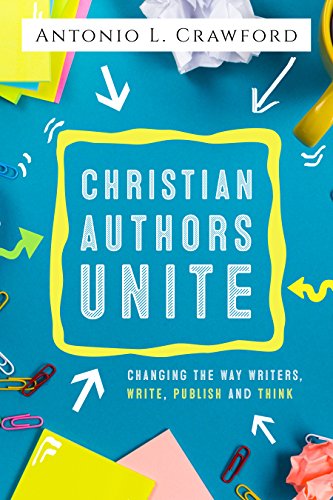 I read and reviewed the first edition of this book. Roberts has since updated the information and issued it as a new book (thus ‘washing’ all previous Amazon reviews, including mine), so I paid for, downloaded and read this updated edition. I applaud the idea of the John 3:16 Marketing Network. It’s a great idea: Christians joining together to support and promote books that share the gospel message.
I read and reviewed the first edition of this book. Roberts has since updated the information and issued it as a new book (thus ‘washing’ all previous Amazon reviews, including mine), so I paid for, downloaded and read this updated edition. I applaud the idea of the John 3:16 Marketing Network. It’s a great idea: Christians joining together to support and promote books that share the gospel message.
However, first impressions are not good, as Roberts doesn’t appear to understand the difference between a biography and a memoir. That’s not necessarily relevant to marketing, but it does show a lack of understanding of genre (which is central to book marketing) and it does show a potentially disturbing lack of research. This lack of research became more and more apparent as I read.
How to Launch a Best-Selling Christian Book is less an instruction manual and more a compilation of blog posts encouraging Christian writers to join the John 3:16 Marketing Network managed by the author, Lorilyn Roberts. The writing style is open and conversational, but it’s not well structured, there is a lot of repetition, and much of the information is only relevant to members of the Network.
In addition, the title is potentially misleading as there’s no guarantee that following these principles will make your book a bestseller:
While there may have been a time I would have said the network alone could help authors to reach best-seller status on Amazon, I no longer believe that to be true.
Note that the Network’s focus is getting your book to the Top 10 of an Amazon sub-category (e.g. Christian Fiction – Historical – WWII), not the coveted Amazon Top 100 Paid list. And it’s here where the lack of research again begins to show. Roberts says the network “totally revamped” how they do launches in March 2013, after noticing their previous method wasn’t gaining the results it used to. That’s not a surprise—Amazon revamped their search algorithms in March 2012 and again in May 2012, and those changes (described in Let’s Get Visible) totally changed the Amazon landscape.
(It has to be added that the Network’s change in approach isn’t exactly working. Their December launch included seven authors, only one of whom made it to bestseller in their category. As a result, Lorilyn Roberts and the John 3:16 Marketing Network will not be hosting any more book launches, which calls this entire book into question. If she’s admitted the method isn’t working …).
What, perhaps, is a surprise is how long it took Roberts and the Network to notice: a full year. In an industry changing as fast as online publishing, that’s the equivalent of a decade. It’s worth commenting that other advisors (e.g. David Gaughran) specifically advise against the “standard launch procedure of seeking to push your book as high as possible on the first day”, which is still pretty much the John 3:16 approach, as outlined in this book.
This isn’t the only time when her examples or methods are outdated. She mentions tags, which haven’t been used on Amazon in almost two years. She comments that only around ten of her 1600 Facebook followers see each post—perhaps because too many of them have reported her posts as spam? Because that’s certainly what clutters up her Twitter feed.
She gifted Kindle copies to newspaper editors without contacting them first—they probably either deleted the email or exchanged the gift for a book they actually wanted to read (which Amazon permits). She ran a Goodreads giveaway, then contacted everyone who didn’t win to invite them to download an audiobook from her website (where she added them to her mailing list). Some might see that as savvy marketing. Patrick, Director, Author Marketing at Goodreads, says:
Contacting all of the people who entered your giveaway is definitely not allowed, and should anybody get an unwanted message like that, they should flag it. I wish authors would stop recommending this, as it is not a best practice.
In other words, it’s spam.
In commenting on reviewing, she says “don’t write something that would hurt you if someone were to write it about your book” and “in the John 3:16 Marketing Network we have some very specific rules about how to do book reviews. You will be provided that information when you join.”
This, to me, is a red light that says that reviews by members of the Network are not impartial, as they are effectively being asked only to write nice things about the Network books they review. Such ‘shill’ reviews are often identified and publicised in the Amazon discussion forums, and I’ve lurked in enough of those discussions to know the author never wins. And I don’t think it’s honest, unless there is some way of marking the books you’ve read and chosen not to review.
Roberts requires authors to have at least ten reviews with an average 4.2 star rating before beginning a launch through the Network, but gives insufficient advice on how authors should obtain those reviews. She also quotes my comments above (which were in my review of the earlier edition of this book) without attribution and without permission.
Again, this demonstrates a lack of knowledge or a lack of research. Although it’s a review of the book she wrote, Amazon, Goodreads and all other online retailers are clear that copyright in reviews is owned by the reviewer, not the author and not the website. The author of a book being reviewed has no right to copy or quote a reviewer without permission (note that copyright law does permit limited quotations in book reviews such as this one, under the principle of ‘fair use’. So while I can quote an author without permission in a review, they can’t legally quote my review without attribution and permission).
Personally, I think five-star reviews are actually of little promotional value without a ‘critical’ review, as savvy Amazon users are getting wise to shill and sock puppet reviews (not to mention those at ffiver.com from “reviewers” like Sohan Kowsar).

Of course, that only applies to those who read and appreciate unbiased reviews. This author has her own way of dealing with reviews she doesn’t like:
I will admit, if someone writes a “not so nice review,” I will vote “no, this review is not helpful.” I would prefer to have less glamorous reviews that are fair ranked above those that are not, so I vote against those that are not useful as a deterrent to unfair reviewers.
Yes, you could argue that she’s only going to downvote ‘unfair’ reviews, not necessarily critical reviews. But she doesn’t make that clear.
Roberts requires that anyone interested in joining the John 3:16 Marketing Network buy and read How to Launch a Best-Selling Christian Book. If that’s something you’re interested in, go ahead. But please don’t expect it to be anything more than an introduction to a community of like-minded Christian authors. As marketing advice, it is lacking.
Marketing is a huge topic, and a short book like this can only ever scratch the surface even when dealing with the niche of online book marketing. That can be seen as both a weakness as a strength—a weakness in that there is so much How to Market Like a Boss! doesn’t say, but a strength in that it does provide to a quick and easy-to-read introduction to the subject.






 w things that he doesn’t mention. Like the number one rule of publishing:
w things that he doesn’t mention. Like the number one rule of publishing:

